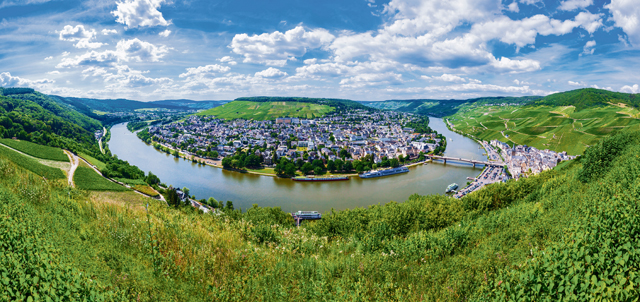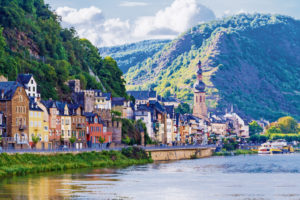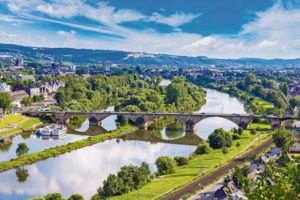
Eco-adventures are the combination of adventurous activities while acting in an environmentally responsible manner. Destinations and activities vary widely and can be anything from floating on a raging river in South Africa to soaring through the tree canopy in the Ozarks! One thing all eco-adventures have in common is the goal of appreciating and enjoying natural beauty with minimal physical impact to the area.
There are hundreds of packages offered for destinations all over the world that involve a lot of traveling and very steep price tags. However, being an eco-adventurer is very easy to do on your own without wasting the green things in our wallet.
Spending years as a backpacker taught me a lot about saving money on gas, wear and tear on my car, decreasing pollution and avoiding the stress of chaos on the roads during peak seasons.

German public transportation is an amazing way to go hiking, biking, climbing and more. The German rail system Deutsche Bahn has cars that allow bikes, enough room for your equipment, and provides a variety of options for one-day or weekend adventures.
There are countless adventures that begin at or near train stops, and also include connecting transportation such as shuttle buses, trollies, etc. to get you back and forth.
One of my favorite eco-adventures is taking the train to the Mosel River with my bike and spending three days riding from Trier to Koblenz. This 126-km ride is amazing and can be a bit rough to do in one day if you have spent the winter indoors and are not prepared. The most prominent villages along the route are Bernkastel-Kues, Traben-Trarbach, and Cochem. However, most of my best rest stops were in tiny villages that you can ride through in only a couple of minutes.
This ride is full of adventure opportunities. Pitch a small tent at one of the many campgrounds, or opt for a bike-and-bed so you can spend a day exploring the villages, the biking and hiking trails through the vineyards overlooking the Mosel River valley.
If you fancy water sports many of the villages offer canoe and kayak rental with endpoints that have return public transportation back to your starting point.

There is no need to weigh yourself down with too many supplies as there are ample stores, markets, wineries, restaurants and bistros along the route to get what you need for every stop. Do keep in mind that plastic is not accepted everywhere and you should carry Euro cash, an EC card, or an ATM card which you can use at local banks.
From spring to late fall you will come upon banners along the ride promoting village festivals. I highly recommend stopping to check one out. Over the years I’ve ended up staying in a small village way too long because of a local fest that lasted until every beer keg and wine bottle was empty, every wurst and steak was eaten, and fun was had until the rise of the sun.
If you become too tired along the route, you can cheat a bit and give yourself a break by boarding one of the inexpensive cruise ships with your bike and gear. They offer outstanding Riesling wines and local food specialties so you can sit back and enjoy the views of the steep vineyards, half-timbered houses, and castles along the route.
Reaching Koblenz at the Deutsches Eck, where the Mosel joins the Rhein, was an incredible end to this eco-adventure. The water where the rivers intersect changes from green to blue and the city of Koblenz is a must-visit while in Germany. Be sure to cross the river to visit Ehrenbreitstein Fortress.
After an overnight stay in Koblenz with an amazing breakfast or a traditional afternoon cake and coffee, continue the journey via train back to Kaiserslautern which takes approximately 1.2 hours. Connections to local towns like Ramstein, Landstuhl, and Kusel run frequently and can be found on the DB site at https://www.bahn.com/en/view/index.shtml
For more information, please visit https://www.mosel.de
Do
- research your route and public transportation options
- plan ahead and make reservations
- pack lightly, only what you need for 1 day at a time
- have a first aid kit, phone and ability to contact EMS
- have all-weather clothing, and euro cash for expenses
Don’t
- expect that everyone speaks English
- expect that plastic for payment will be accepted everywhere
- disrespect your surroundings by leaving your trash
- disregard quiet hours. The only exception is during festivals that go way beyond the 10 p.m. hour rule


